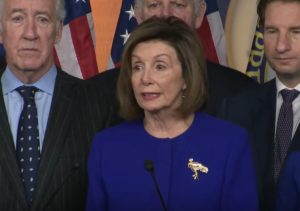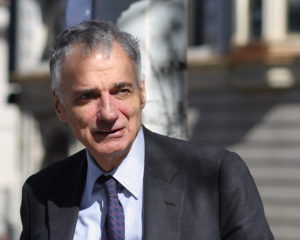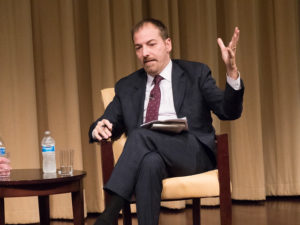Pitfalls of Soaking the Rich
Rich Trumka -- the AFL-CIO president intercepts any attempted honorific with an easy "Call me Rich" -- comes armed with charts. His first one is, literally, in shades of gray. Its message is anything but.Rich Trumka — the AFL-CIO president intercepts any attempted honorific with an easy “Call me Rich” — comes armed with charts. His first one is, literally, in shades of gray. Its message is anything but.
Once, its bar graphs indicate, the middle class and the wealthy prospered in tandem. Between 1947 and 1973, the rich got richer, but the not-so-rich actually prospered more. The household income of the middle 20 percent of Americans nearly doubled, while the income of the top 20 percent of Americans rose the least of any group, 85 percent.
After 1973, the story changes dramatically. Income for the middle group inched up, rising 24 percent through 2006. But the top 20 percent grew at nearly three times that rate.
This graphic depiction of income inequality is, understandably enough, at the center of Trumka’s worldview, a perspective that became clear when he came to lunch last week at The Washington Post [where columnist Marcus is based]. Growing income inequality is troubling. It would be troubling in the absence of a budget crisis. But that does not mean, as Trumka would have it, that the solution to the nation’s fiscal woes is always, or only, reducing income inequality.
In short, soaking the rich only gets you so far.
Take, for example, what Trumka calls “the current deficit hysteria” and its cousin, entitlement spending. “We don’t have an entitlement problem,” Trumka says. “We have a revenue problem.” In the world according to Trumka, no benefits need be cut, no retirement ages adjusted. Simply requiring the rich to pay a fairer share would bridge the gap.
I’m all for a more progressive tax code. But consider: The Tax Policy Center examined what it would take to avoid raising taxes on families earning less than $250,000 a year yet reduce the deficit to 3 percent of the economy by decade’s end. The top two rates would have to rise to 72.4 and 76.8 percent, more than double the current level. You don’t have to be anti-tax zealot Grover Norquist to think this would be insane.
Or ask Trumka about whether the age of eligibility for Social Security, now 62 for partial benefits, should be raised. This former coal miner — and son and grandson of coal miners — erupts. His father worked 44 years in the mines, suffering from black lung, “and if you had said to my dad, ‘You have to work until you’re 63,’ that would have been a death sentence.” Fair enough. Some people may need special protection.
But what, an editor asks, gesturing around the gleaming conference table at the middle-aged assembly, about those who do not work in such punishing occupations and for whom the current system would provide two, maybe three, decades of benefits? “What’s wrong with that?” Trumka asks indignantly. “The rest of the world does that!” Yes, and how are things going in Greece?
Fresh from the Post, Trumka told the new fiscal responsibility commission that the best way to fix Social Security would be to raise or eliminate the cap on earnings subject to the Social Security tax.
Again, sounds simple, and raising the cap makes sense — in isolation. But combined with other taxes on the wealthiest? The Congressional Budget Office estimated that raising the cap to cover 90 percent of earnings would raise taxes on the highest earners by 6 percent for those born in the 1960s and by 15 percent for those born in the 2000s. Add that to higher income tax rates and you’re talking real money, although that change would fill only about one-third of the shortfall.
Finally, ask Trumka about whether generous pensions and health benefits promised to public employees remain affordable — were they ever? — in light of strapped state budgets. Should public employees be called on to sacrifice? Trumka fairly bursts with outrage: “Were they the ones that caused this crisis? Were they the ones that lost 20 percent of the wealth in this country?”
No, but isn’t it hard to defend outsized benefits to public-sector employees when wages elsewhere are stagnant and the unemployment rate is so high? Not to Trumka. “Why is that hard to defend when a guy in a hedge fund made $4.4 billion last year?” he asks.
Guys in hedge funds make outrageous sums. Union members — even public-sector union members — don’t. Trumka’s frustration is reasonable. His one-sided, tax-the-rich reflex is not. It is the shortsighted bookend to the no-new-taxes mantra of the ideologues on the other side of this stale, and seemingly stalemated, debate.
Ruth Marcus’ e-mail address is marcusr(at symbol)washpost.com.
© 2010, Washington Post Writers Group
Your support matters…Independent journalism is under threat and overshadowed by heavily funded mainstream media.
You can help level the playing field. Become a member.
Your tax-deductible contribution keeps us digging beneath the headlines to give you thought-provoking, investigative reporting and analysis that unearths what's really happening- without compromise.
Give today to support our courageous, independent journalists.






You need to be a supporter to comment.
There are currently no responses to this article.
Be the first to respond.